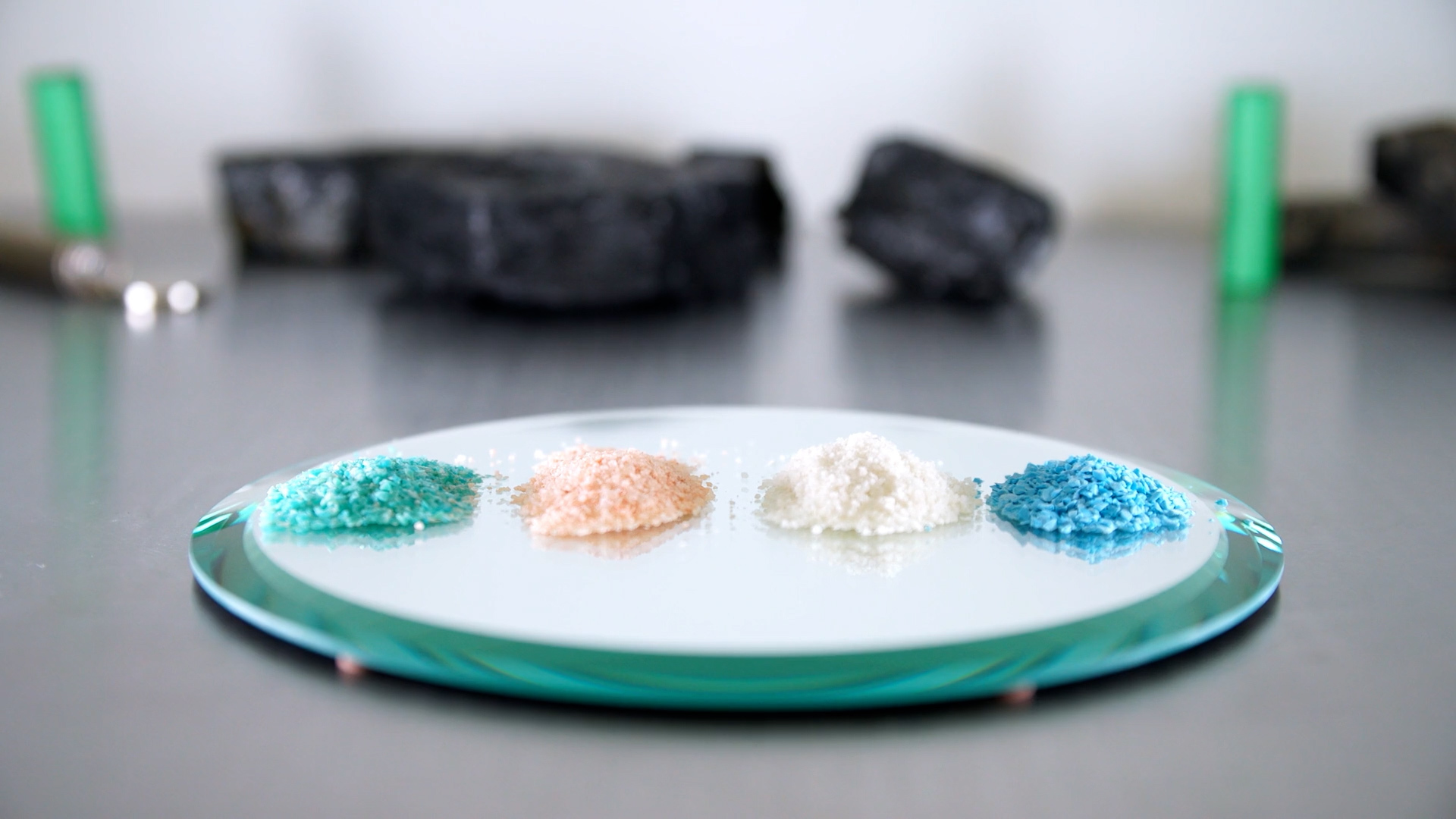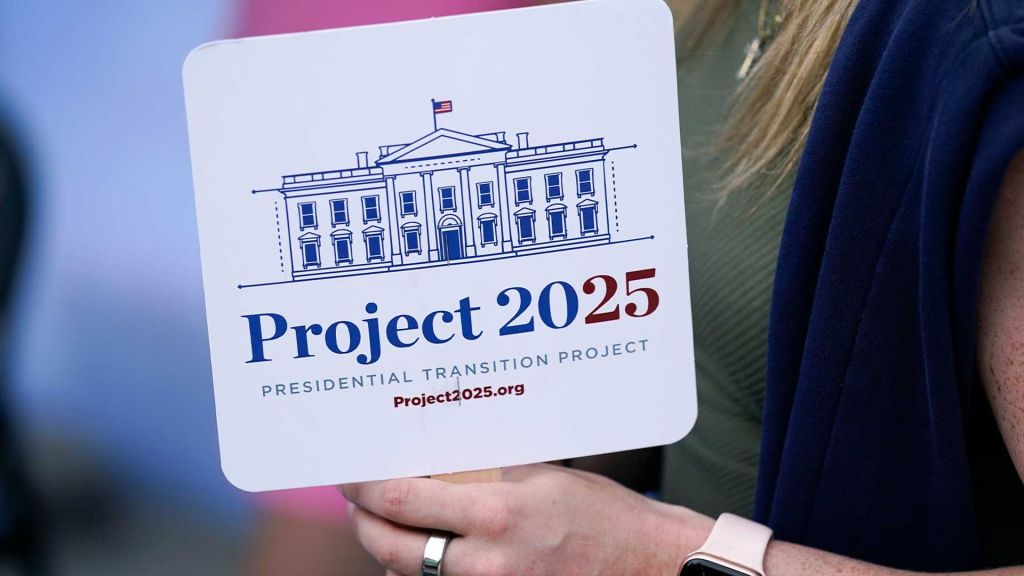
[JACK AYLMER]
WHEN IT COMES TO MAKING BATTERIES FOR E-Vs, EXPERTS SAY CHINA HAS A 15 YEAR HEAD START ON THE REST OF THE WORLD.
BEIJING’S STRANGLEHOLD OVER THE MINING AND REFINING OF rare-earth MATERIALS USED TO MAKE THIS TECHNOLOGY is an increasing concern FOR U.S. OFFICIALS.
IT’S PART OF WHY LAST WEEK, THE BIDEN ADMINISTRATION PLEDGED $62 MILLION TOWARDS EV BATTERY RECYCLING INITIATIVES.
THAT’S WHERE COMPANIES LIKE RE-ELEMENT COME IN.
[David Sauve, Chief Marketing Officer at ReElement]
“What we believe is that regardless of Evie growth or decline in growth, the US still has that opportunity to reclaim some of that supply chain monopolies that China holds.”
[JACK AYLMER]
DAVID SAUVE IS THE CHIEF MARKETING OFFICER AT RE-ELEMENT.
HIS COLLEAGUES HAVE ENGINEERED A SYSTEM THAT RECOVERS RARE EARTH ELEMENTS AND CRITICAL METALS FROM RECYCLED EV BATTERIES.
[David Sauve, Chief Marketing Officer at ReElement]
“So the process is really remarkable in that it’s able to both recover in excess have 95% of the input, and also the purity. So you have the recovery, the yield, and then the purity, the purity exceeds 99.99%.”
[JACK AYLMER]
HERE’S HOW THEY DO IT.
OFFICIALS AT RE-ELEMENT COMPARE THE PROCESS TO A WATER SOFTENING SYSTEM, WHICH REMOVES MINERALS THAT CAN CAUSE DAMAGE TO PLUMBING SYSTEMS.
BUT IN THIS CASE, THEY’RE TAKING THE ELEMENTS OUT so they can be RE-USEd.
COLUMNS ABOUT SIX FEET TALL ARE PACKED DENSELY WITH A BINDING RESIN THAT COLLECTS THE DESIRED MATERIAL WHICH IS THEN WASHED OUT AND EXTRACTED.
AND THIS CAN ALL BE DONE AT A PRICE COMPARABLE TO WHAT CHINA CHARGES FOR ITS ELEMENTS.
THAT’S EVEN after you factor in BEIJING’S ABILITY TO ARTIFICIALLY DEFLATE COSTS IN aSTATE-CONTROLLED INDUSTRY.
[David Sauve, Chief Marketing Officer at ReElement]
“It can also be tremendously expensive to produce the material, but we stand out amongst others, because the actual saleable material on the back end competes with China’s prices, even if it’s being perhaps manipulated at the state level.”
[JACK AYLMER]
THIS BENEFITS AUTOMAKERS TRYING TO SOURCE MATERIALS TO BUILD EV BATTERIES.
IT’S ALSO A POSITIVE FOR THE PEOPLE WHO EVENTUALLY BUY THE CAR.
THIS TECHNOLOGY CAN ACTUALLY MAKE AN ELECTRIC VEHICLE CHEAPER.
THE BIDEN ADMINISTRATION HAS TRIED TO EASE U.S. DEPENDENCY ON CHINA FOR EV RESOURCES THROUGH TAX CREDITS.
REQUIREMENTS HAVE BEEN PUT IN PLACE THAT LIMIT HOW MUCH OF AN EV’S MAKEUP CAN BE SOURCED FROM OUTSIDE THE CONTINENT OF NORTH AMERICA.
IF AN ELECTRIC CAR DOESN’T HIT THE NECESSARY PERCENTAGES, IT WON’T QUALIFY FOR THE SEVEN-AND-A-HALF-THOUSAND-DOLLAR TAX CREDIT OFFERED BY THE FEDERAL GOVERNMENT.
[David Sauve, Chief Marketing Officer at ReElement]
“We kind of hold the secret sauce to access those tax credits. So, and the the automakers are starting to wake up to that fact as well.”
[JACK AYLMER]
QUALIFYING FOR THOSE TAX CREDITS NOT ONLY BRINGS DOWN AN EV’S UPFRONT COST BUT ALSO MAKES IT CHEAPER TO DRIVE FASTER.
AFTER ABOUT FIVE TO SIX YEARS, AN EV WILL EVENTUALLY BREAK EVEN AND PROVE LESS EXPENSIVE THAN A GAS CAR DUE TO THE PRICE DIFFERENCE BETWEEN FUEL AND ELECTRICITY.
BUT, A NON-TAX-CREDIT-ELIGIBLE EV MAY NOT SEE THOSE CONSUMER SAVINGS UNTIL A WHOLE DECADE LATER.
[David Sauve, Chief Marketing Officer at ReElement]
“We have actually been told behind the scenes that our one of our commercial facilities is coming online this year, I think it will be one of two in the world that will be able to meet those standards and those requirements for the tax credit.”
[JACK AYLMER]
THE APPLICATIONS FOR RE-ELEMENT’S WORK ARE WIDESPREAD BECAUSE THE MATERIALS THEY’RE EXTRACTING FOR EV BATTERIES ARE ALSO USED FOR A VARIETY OF OTHER THINGS.
FROM SOLAR PANELS AND WIND TURBINES, TO CELLPHONES AND LAPTOPS, EVEN THE DEPARTMENT OF DEFENSE KEEPS A STOCK OF THESE ELEMENTS ON HAND.
[David Sauve, Chief Marketing Officer at ReElement]
“A lot of those things find their way, not just into EVs, but they have a large, large scale deployment in military applications. And we know that at the highest levels of the DOD, they’re trying to find alternative suppliers of these things, because the material is essentially all coming from China. So if there was ever a breakdown in diplomatic relations, they would be left without any raw material for their military application.”
[JACK AYLMER]
THIS IS WHY RE-ELEMENT BELIEVES THAT NO MATTER WHAT THE FUTURE HOLDS FOR ELECTRIC VEHICLES, THEIR ELEMENT RECYCLING TECHNOLOGY WILL BE HERE TO STAY.
[David Sauve, Chief Marketing Officer at ReElement]
“The fact that we’re able to process both the battery elements, the battery minerals, and the rare earth elements, allows us to maybe outlive if if EVs turn out to be more of a trend of the 2020s, then we’re able to kind of stand beyond that trend.”







